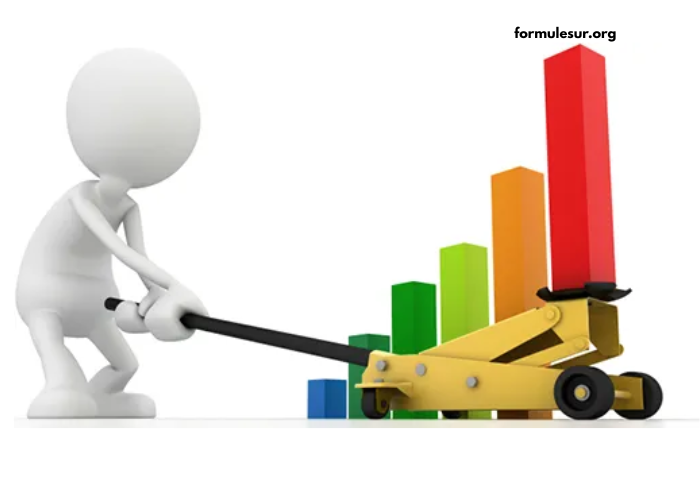Maintaining a healthy lifestyle while juggling a demanding career can feel overwhelming. For busy professionals, tight schedules and constant deadlines often push wellness to the back burner. However, adopting healthy living habits doesn’t have to be complicated or time-consuming. With a few mindful adjustments, even the busiest individual can embrace a balanced and energized life.
In this article, we will explore sustainable and realistic healthy living habits for busy professionals that can be easily incorporated into daily routines. These habits not only promote physical well-being but also improve mental clarity, productivity, and overall life satisfaction.
The Importance of Health for Career Success
Success in today’s fast-paced work culture isn’t just about hard work and long hours. It’s equally about mental resilience, physical stamina, and emotional balance. Professionals who prioritize their health are more likely to:
-
Stay focused and energized throughout the day
-
Handle stress and pressure more effectively
-
Exhibit higher levels of productivity and creativity
-
Reduce the risk of burnout and chronic illness
By integrating small but powerful health habits into your routine, you build a strong foundation for both personal and professional growth.
H2: Smart Nutrition for Optimal Energy
H3: Start Your Day with a Nutritious Breakfast
Skipping breakfast might seem like a time-saving hack, but it actually reduces mental performance and energy. Choose quick and healthy options such as:
-
Overnight oats with fruits and nuts
-
Greek yogurt with granola
-
Whole grain toast with avocado or nut butter
These meals provide slow-releasing energy and keep blood sugar levels stable.
H3: Meal Prep to Avoid Processed Foods
One of the top strategies for healthy eating is meal preparation. By dedicating a few hours each week to plan and prepare your meals, you can:
-
Avoid fast food and vending machine snacks
-
Save money and time
-
Ensure balanced, nutritious meals
Use compartmentalized containers and stock up on lean proteins, whole grains, and fresh veggies.
H3: Stay Hydrated Throughout the Day
Dehydration can cause fatigue, headaches, and reduced concentration. Busy professionals should aim to drink:
-
At least 8–10 glasses of water daily
-
Herbal teas or infused water for variety
-
Electrolyte-rich beverages after intense physical activity
Keep a reusable water bottle at your desk as a constant reminder.
H2: Incorporating Exercise into a Tight Schedule
H3: Micro Workouts for Maximum Benefit
If you can’t find 60 consecutive minutes for the gym, break it down into short “micro workouts.” Research shows that 3–4 mini sessions of 10–15 minutes can be equally effective. Consider:
-
A brisk walk during lunch break
-
A 10-minute stretch session between meetings
-
A quick high-intensity circuit at home
H3: Use Active Transportation
If your schedule allows, try integrating exercise into your commute:
-
Walk or cycle to work
-
Get off one stop early and walk the rest
-
Use stairs instead of elevators
These small actions add up and help meet daily movement goals.
H3: Desk Exercises and Stretching
Long hours of sitting can lead to back pain and poor posture. Counteract this with:
-
Standing desks or sit-stand converters
-
Regular stretching sessions every hour
-
Desk-friendly exercises like leg lifts, shoulder rolls, or wall sits
Even 5-minute movements can reduce stiffness and improve circulation.
H2: Stress Management and Mental Health
H3: Practice Mindfulness and Meditation
Mental health is as vital as physical health. Incorporating mindfulness techniques such as:
-
Guided meditation apps (like Headspace or Calm)
-
Deep breathing exercises during stressful moments
-
Gratitude journaling in the morning or evening
These habits help in managing anxiety and increasing self-awareness.
H3: Set Realistic Work Boundaries
Professional success shouldn’t come at the cost of your well-being. Set boundaries to reduce burnout:
-
Designate “unplugged” hours with no emails or calls
-
Take regular breaks during long work sessions
-
Learn to say no when your plate is full
Work-life balance is not a luxury; it’s essential for long-term productivity.
H3: Prioritize Sleep Quality
Lack of sleep impairs cognitive function and decision-making. To enhance sleep:
-
Maintain a consistent bedtime, even on weekends
-
Avoid screens at least 30 minutes before bed
-
Create a relaxing sleep environment—dark, quiet, and cool
Aim for 7–9 hours of restful sleep to recharge your mind and body.
H2: Time Management for Healthy Living
H3: Plan Ahead with a Daily Routine
An organized day leads to reduced stress and better health outcomes. Try:
-
Time-blocking for meals, exercise, and relaxation
-
Using a planner or app to track wellness goals
-
Creating a “power hour” for non-negotiable self-care habits
This structure provides predictability and reduces decision fatigue.
H3: Limit Multitasking
Multitasking may seem efficient, but it reduces focus and increases mental load. Instead:
-
Tackle one task at a time with full concentration
-
Use techniques like Pomodoro (25-min focus + 5-min break)
-
Avoid checking emails or phones during meals or workouts
Focused work leads to faster results and more free time.
H2: Building a Supportive Environment
H3: Surround Yourself with Health-Conscious People
Your environment strongly influences your habits. Surround yourself with:
-
Colleagues who value wellness
-
Friends who enjoy active lifestyles
-
Social groups or communities focused on health goals
Positive peer pressure can motivate you to stay consistent.
H3: Make Your Home a Wellness Zone
Transform your home into a health-friendly space:
-
Stock your kitchen with healthy foods
-
Keep workout equipment accessible (resistance bands, yoga mat)
-
Design a calming bedtime routine area
A supportive space makes healthy choices easier and more natural.
H2: Leveraging Technology for Better Health
H3: Use Fitness and Nutrition Apps
Technology can streamline your wellness journey. Popular apps include:
-
MyFitnessPal for tracking meals
-
Strava or Fitbit for fitness goals
-
Calm or Insight Timer for meditation
Automation and reminders help maintain consistency.
H3: Monitor Progress and Set Goals
Tracking your health metrics keeps you accountable and motivated. Set SMART goals:
-
Specific: “Walk 7,000 steps daily”
-
Measurable: “Lose 2 kg in a month”
-
Achievable, Relevant, and Time-bound
Regular tracking encourages course correction and celebration of wins.
H2: Traveling Smart and Staying Healthy
H3: Pack Healthy Snacks and Meals
Frequent travelers can stay on track by:
-
Packing protein bars, nuts, or fruits
-
Researching healthy eateries at your destination
-
Avoiding heavy meals before flights or meetings
Preparation helps prevent unhealthy last-minute decisions.
H3: Maintain Activity During Business Trips
Even while traveling:
-
Choose hotels with gyms or walking-friendly locations
-
Use bodyweight exercises in your room
-
Prioritize sleep and hydration
Consistent routines during travel minimize disruptions to your health goals.
H2: Avoiding Common Pitfalls
H3: Don’t Rely on Caffeine Alone
Excessive coffee may mask fatigue but doesn’t address the root cause. Instead:
-
Use green tea for a gentler energy boost
-
Rely on sleep, hydration, and movement for natural energy
-
Don’t skip meals in favor of coffee
H3: Watch Out for Emotional Eating
Stress often leads to mindless snacking. To avoid this:
-
Recognize emotional hunger vs. physical hunger
-
Keep healthy snacks handy
-
Practice mindful eating—eat slowly and without distractions
Being conscious about food choices can transform your health outcomes.
H2: Creating a Long-Term Wellness Strategy
H3: Start Small and Build Gradually
Drastic changes often lead to burnout. Instead:
-
Focus on 1–2 habits at a time
-
Celebrate small victories
-
Allow flexibility and avoid perfectionism
Wellness is a journey, not a destination.
H3: Reevaluate and Adjust Periodically
Your needs and schedule may change. Every few months:
-
Review your health goals
-
Adjust routines based on what works
-
Stay open to trying new techniques or tools
Consistency is key, but adaptability ensures long-term success.
Final Thoughts: A Healthier You Is a More Successful You
Healthy living isn’t about massive lifestyle overhauls. It’s about small, intentional decisions made consistently. As a busy professional, your time is valuable, but so is your well-being. By weaving these practical habits into your daily life, you can thrive both in your career and in your personal life.
Start today. Pick one habit from this guide and commit to it for the next seven days. Over time, you’ll create a routine that supports sustainable health, productivity, and happiness.



